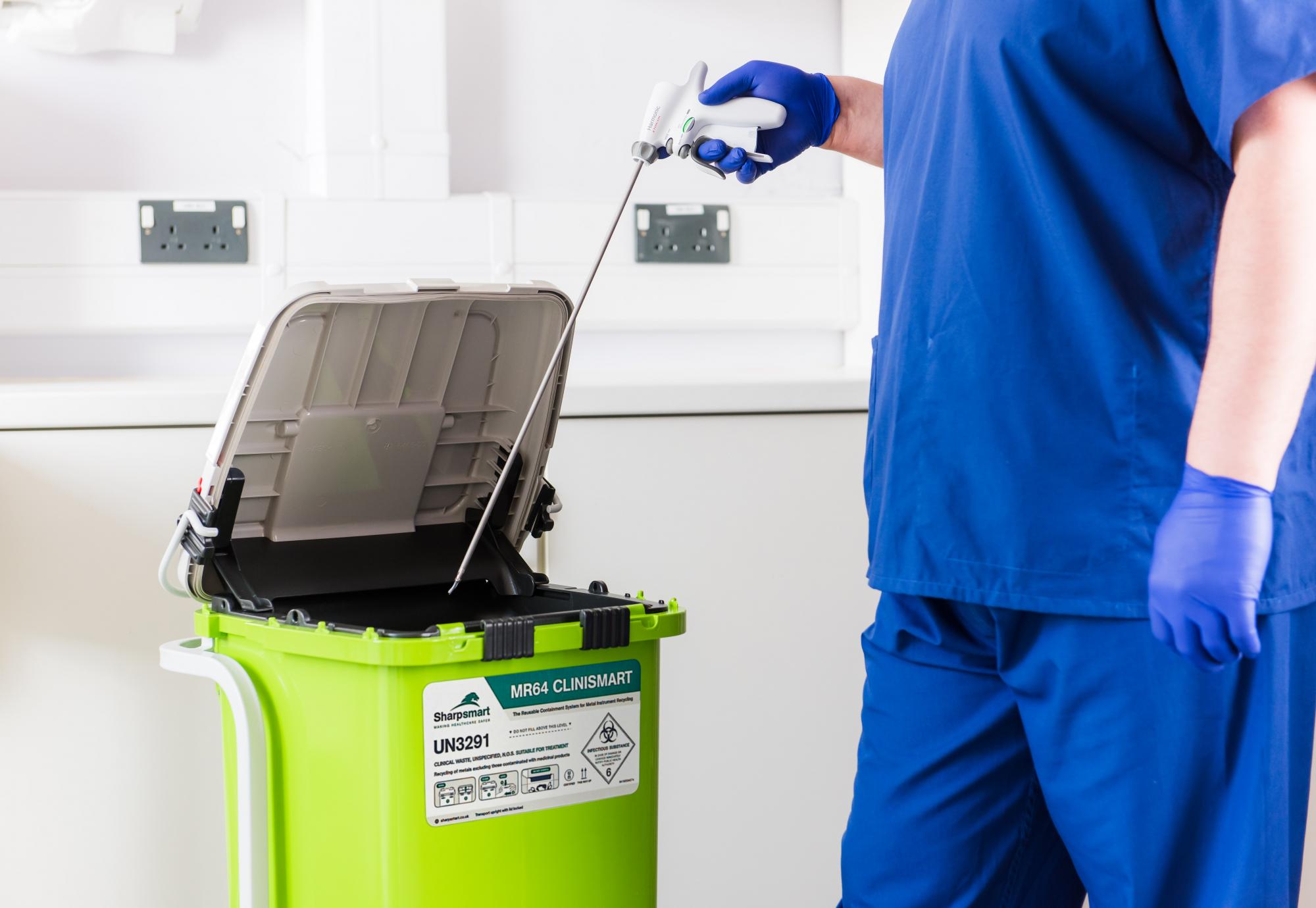Did you know that Acute NHS Trusts generate a colossal 420+ tonnes of metal waste (with some plastic) each year which is then disposed of via high-temperature incineration?
That’s equal to over 3kg of waste per bed!
This demonstrates why finding a sustainable alternative for metal waste generated within the healthcare environment has been a priority for us.
The healthcare industry is no stranger to the challenges associated with finding environmentally responsible waste disposal outlets – traditional methods like fossil fuel-powered high-temperature incineration are costly from both a financial and environmental standpoint.
In this article, we'll explore how Sharpsmart's reusable containers for metal recycling are reshaping the way healthcare facilities handle their waste, creating an environmentally friendly approach.
Transforming Metal Waste Management
There were a few key elements that needed to come together for us to secure a sustainable closed-loop solution for metal waste management, they included:
- Supporting healthcare workers with segregation.
- Developing the right container.
- Finding outlets with credible partners.

Understanding Your Healthcare Environment
Creating the world’s safest reusable waste containers has been our bread and butter for over 20 years, so developing a reusable container for healthcare metal waste made a lot of sense.
We developed our MR64 container to make metal recycling easy, it was designed to make safe and compliant waste segregation at the point of generation second nature for those using them.
The container, however, was only part of the solution, more was needed to make this an effective method for managing metal waste sustainably.
Beyond Waste Containers
With any of our solutions, we provide more than just a waste containment system – our service goes beyond the waste compound. We learned early on in our journey that working closely with clinical teams within the four walls of a facility is vital.
Through audits, blended learning programmes, and educational material, we actively support clinical staff in improving waste segregation and following best practices.
Building Sustainable Relationships
When it comes to securing environmentally responsible waste disposal outlets, partnerships built on credibility, trust, and shared values are of the utmost importance.
Finding a partner we could rely on in a joint commitment to reduce the environmental impact of healthcare waste was a key part of bringing about the change that was needed to make our metal recycling solution possible.
While we’re on the subject of metal waste, let’s take a look at the waste journey…
The Waste Journey
There are quite a few steps in the waste journey, but we can collate them into three key steps, starting with collection and bulking.
- Collection and Bulking
Sharpsmart collects the full metal waste containers your site and we transport them to our nearest facility for the waste to be bulked into a large load.
- Shredding and Separating
Once bulked, we transport around 6-7 tonnes of waste at a time, dispatching it to a trusted partner facility for shredding and the plastics are then separated from the metals.
- Recycling Process
Once separated, the plastics are sent out as residual waste to energy-from-waste and converted into energy to fuel a greener tomorrow.
As for the metals, they’re smelted and given a new lease of life – reborn with the potential to become almost anything from medical devices to the everyday objects that we rely on.
How Much CO2 Is Reduced with Closed-Loop Metal Recycling?
With a carbon output of 901.29kg per tonne of waste, it’s clear that 420+ tonnes of metal waste being disposed of via high-temperature incineration is far too high a number.
The Sharpsmart solution for metal recycling begins with segregating the metals at the source, this is a crucial step for a closed-loop recycling system to work effectively. If metal recovery is done from incinerator bottom ash it results in the downcycling of metals – resulting in a combination of metals which cannot be used for high-performance manufacturing.
Studies have shown that recycling one tonne of steel saves 1.4 tonnes of iron ore, 0.8 tonnes of coal, 0.3 tonnes of limestone and additives, and 1.67 tonnes of CO2.
This means a potential carbon-positive result when compared to metals recovered after high-temperature incineration or products that are manufactured from scratch using virgin materials.
Embrace a Greener Future with Your Healthcare Metal Waste
Sending your metal waste for disposal via high-temperature incineration can be costly both for your budget and the planet.
By seeking out more sustainable solutions you can divert large volumes of waste from carbon-intensive treatment, preserve precious resources and slash your greenhouse gas emissions.
It’s time to embrace a greener future for healthcare and transform waste disposal from a mundane chore to a powerful statement of your organisation’s values whilst reducing your environmental impact and improving your bottom line.



















